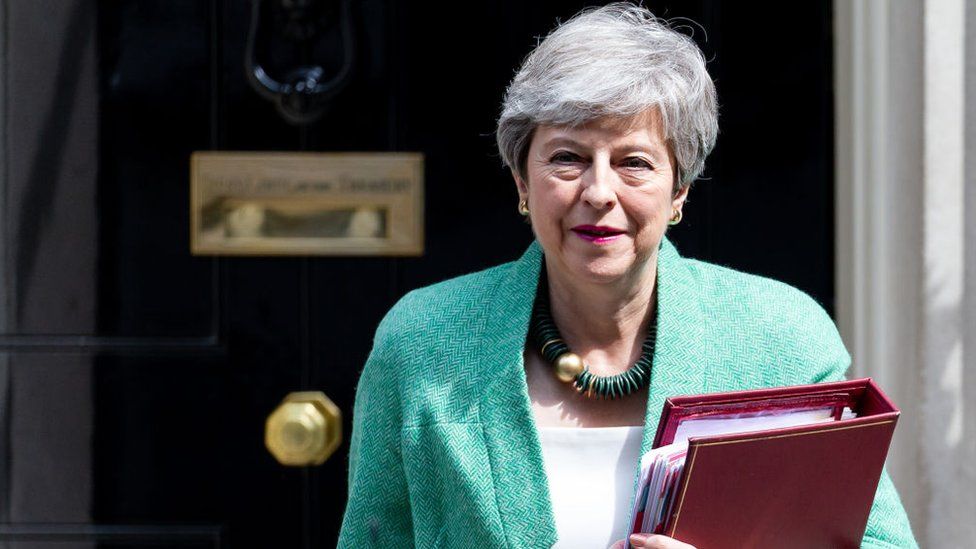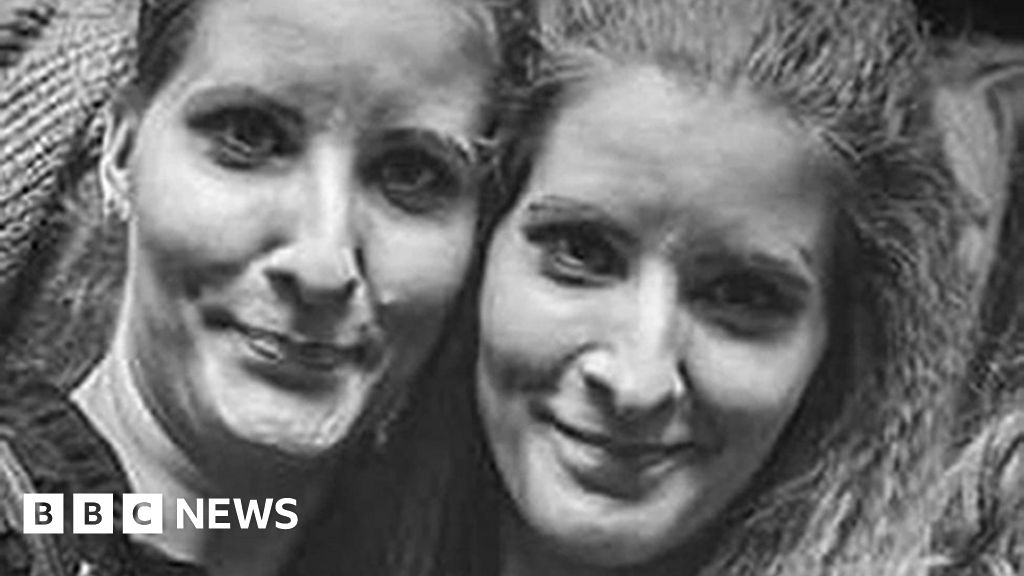 Image source, Getty Images
Image source, Getty Images
Theresa May would tell staff: "Go and get me the Jelly Babies," to counteract the effects of type 1 diabetes, during her time at No 10.
Lady May, diagnosed in 2013, told Radio 4's Today programme the adrenaline of Prime Minister's Questions would make her blood-sugar levels spike.
Type 1 diabetes means the body produces too little of the hormone insulin, which controls blood glucose.
Lady May says she copes pretty well now but "there are good days and bad days".
The condition should not stop people from doing anything - even from becoming prime minster, as she was between 2016 and 2019, Lady May said.
And she pointed to Health Secretary Victoria Atkins, who was diagnosed with type 1 as a child, like most people with the condition.
Artificial-pancreas technology
When Lady May was told she had type 1, in her 50s, she told the consultant: "I'm too old. I can't be."
Over time, she has learned to think "very carefully" about her blood-sugar level - mainly affected by food intake and exercise - and how to control it with daily insulin injections.
But when she felt her blood sugar dropping in meetings, Jelly Babies were her "go-to".
Lady May also hailed new artificial-pancreas technology, which means thousands more people will be able to manage their condition far more easily on the NHS.
The system uses a glucose sensor under the skin to automatically calculate how much insulin is delivered via a pump.
Image source, Getty Images
Image caption,Lady May takes insulin every day to control her blood-glucose levels and wears a patch on her arm to monitor them
Lady May has chaired a parliamentary inquiry into the life-threatening consequences of having both type 1 diabetes and an eating disorder.
Type 1 disordered eating (T1DE) - someone restricting the amount of insulin they take, to control their weight - can lead to unstable blood-sugar levels, malnutrition and a raised risk of depression and anxiety. It is also known as diabulimia.
It could be affecting up to 40% of females and 15% of males with type 1 diabetes, research suggests.
The parliamentary inquiry heard from Lesley and Neal Davison, whose daughter Megan had diabulimia and killed herself aged 27.
Lady May told BBC News: "When I first heard about it... the idea that a young woman could actively not take her insulin because of concern about body image - because it can lead to putting on weight - I was horrified by that.
"But you can understand why young people might get into that position."
Better awareness of the condition, more mental-health support and a joined-up approach by the NHS are all needed so that healthcare professionals are aware of the "conflicting pressures" on people with type 1 and an eating disorder, Lady May said.
'Isolating people'
Type 1 diabetes charity JDRF UK chief executive Karen Addington said T1DE was "both devastating and widespread".
"It can be a frightening and lonely experience, isolating people from their loved ones," she said.
"If you're experiencing symptoms, you're not alone.
"Please reach out to your GP and diabetes specialist - they're there to guide you."
Related Internet Links
The BBC is not responsible for the content of external sites.
 (1).png)
 11 months ago
23
11 months ago
23


















